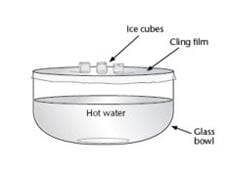In this activity students use current data to investigate the UK’s energy sources.
Go to gridwatch.co.uk and use the table and the key at the bottom of the page to complete the following table. This website shows you where the UK’s electric power is coming from and what the total demand (use) is and has been over the past year.
(1 GW = 1 000 000 000W)

- In some of the boxes, you may see a negative number – what does that mean?
- What is the total net amount of power we are currently getting from France, the Netherlands, Belgium and Norway?
- For the power generated in the UK, highlight all renewable energy sources.
- What is the total amount of power we are currently generating from fossil fuels in the UK?
- Looking at the graph headed ‘yesterday’, when would have been the best time to charge an electric car, if you wanted to use as much renewable power as possible? Why?
- Looking at the graph headed ‘last year’ which season(s) have the most energy generated by solar energy?
- Which season(s) have the most energy generated by wind energy?
Extension
By looking at the total energy demand, and the production by wind energy, what can you deduce is the purpose of gas turbines?
Can you see any correlation between wind output and gas turbine output?
Opportunity for Group Work
Make a poster or presentation showing what you have learned.



